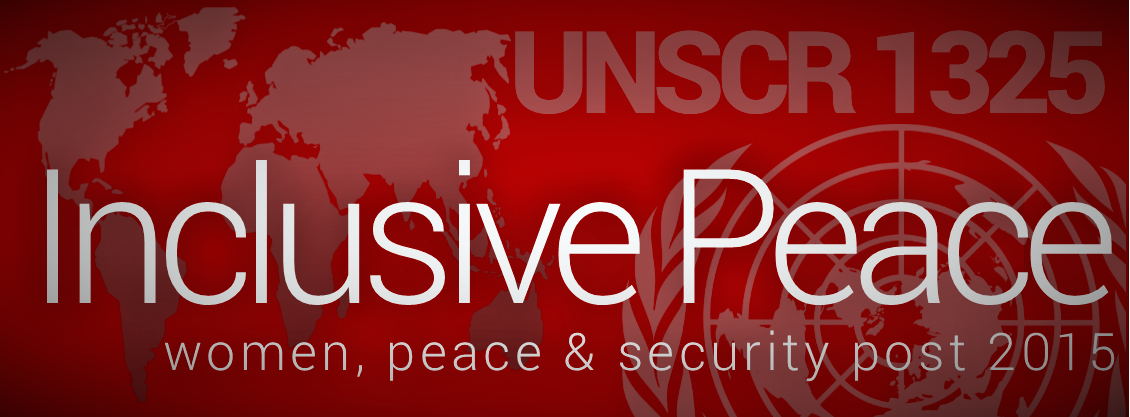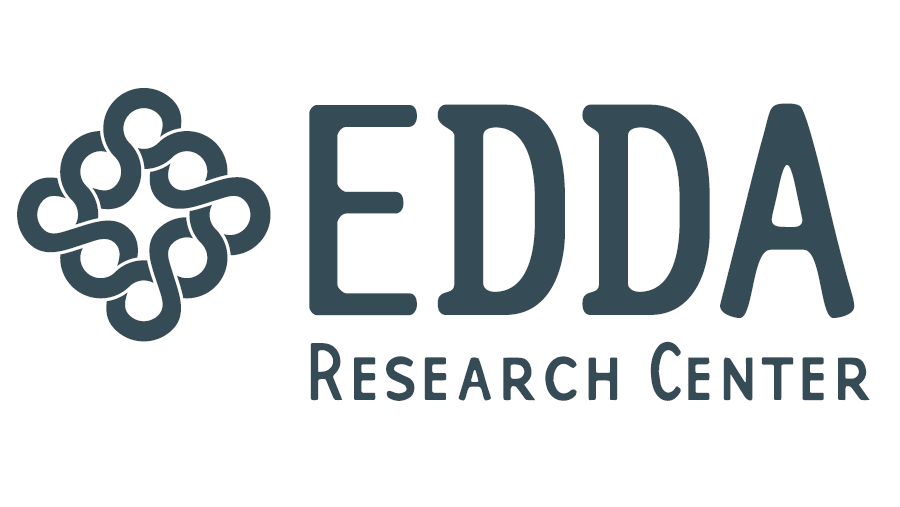 EDDA, in collaboration with the United Nations University Gender Equality Studies and Training Programme (UNU-GEST) and the Icelandic Ministry for Foreign Affairs is organizing an international conference entitled “Inclusive Peace: Women, Peace and Security Post 2015”. The conference will take place on 14 – 15 April 2016 at the National Museum of Iceland, Lecture Hall, in Reykjavík.
EDDA, in collaboration with the United Nations University Gender Equality Studies and Training Programme (UNU-GEST) and the Icelandic Ministry for Foreign Affairs is organizing an international conference entitled “Inclusive Peace: Women, Peace and Security Post 2015”. The conference will take place on 14 – 15 April 2016 at the National Museum of Iceland, Lecture Hall, in Reykjavík.
2015 was a commemoration and landmark year of global efforts towards women’s rights and gender equality. It not only marked the 20th anniversary of the Beijing Declaration and Platform for Action as well as he 15th anniversary of the UN Security Council Resolution (UNSCR) 1325 on women, peace and security. It also saw the adoption of the 2030 Agenda for Sustainable Development and the Sustainable Development Goals (SDGs), which will guide global development policy over the next 15 years and which includes peace and gender as cross-cutting issues. Together these milestones draw a clear link between gender equality, peace and security, and sustainable development, calling for inclusive approaches for active participation of women at all levels of conflict prevention and resolution, peace building and peacekeeping.
The conference programme is available here.
UN Security Council Resolution (UNSCR) 1325 and its complementary resolutions serve as an important legal and political framework to advance peace, women’s rights and human security. UNSCR 1325 was the first resolution to link women’s experiences of conflict to international peace and security; it recognizes that war impacts women differently than men and stresses the importance of women’s equal and full participation as agents in the prevention and resolution of conflicts, peacebuilding and peacekeeping. The Resolution also recognizes that rape and other forms of sexual violence in conflict constitute a war crime and demands that parties to armed conflict take appropriate measures to protect civilians from such abuses. It has therefore become the organising framework for the women, peace and security (WPS) agenda, which focuses on advancing the components of UNSCR 1325 and its sister resolutions.
This framework constitutes an integral part in promoting women’s human rights as highlighted by CEDAW’s General Recommendation no.30 on Women in Conflict Prevention and Post-conflict Situations. The latest UNSCR resolution on women, peace and security (2242 / 2015) can be seen as an urgent call to UN member states, the Secretary General and appropriate UN bodies to put more effort into the implementation and funding to advance this agenda. Equipped with the necessary tools, actors involved with gender equality, peace, security and sustainable development have the means to engage and demand political as opposed to military conflict interventions and more participation of women in peace and security processes. This framework also bridges conflict prevention and its resolution based on the recognition that women’s participation is fundamental for a transformative approach to transitional justice and peace-building that will address root causes of conflict and counter marginalization at both the micro and macro levels. Despite this progress and momentum in global policy, the implementation of the WPS resolutions has been inadequate in practice and national progress in conflict-affected regions slow as documented by the Global Study on the Implementation of UNSCR 1325. Geopolitical interests, counter-terrorism and national security agendas continue to prioritise military solutions over political responses, with the resulting de-emphasis on the respect for fundamental human rights. More needs to be done to challenge the use of military means to reduce or end armed violence and increase the role of women as agents of change.
CALL FOR PARTICIPANTS
The international conference Inclusive Peace: Women, Peace and Security Post 2015 will address the progress and implementation of the women, peace and security (WPS) agenda. The conference is organised by the United Nations University Gender Equality Studies and Training Programme (UNU-GEST) and EDDA – Center of Excellence at the University of Iceland with support from the Icelandic Ministry for Foreign Affairs. Conference participation is open to all and free of charge.
Registration for Inclusive Peace: Women, Peace and Security Post 2015 (not required, but encouraged).
For those interested in contributing to the conference by presenting their research or work related to the conference themes, please send presentation title, CV and short abstract (300 words max) no later than 1 April 2016 to unugest@hi.is.
Themes and panels
The conference explores three key themes. First, it examines the prevention of sexual and gender-based violence, gender awareness in conflict prevention and early warning systems. Second, it focuses on the participation of women in peace processes, paying special attention to mechanisms designed to increase the number of women at all levels of decision-making institutions and to strengthen partnerships with local women’s organisations and promoting women’s leadership through UNSCR 1325 national action plans (NAPs). Finally, it addresses women’s roles and participation in conflict transformation as setting the stage for a just and gender-sensitive foundation for peace, particularly in the realms of transitional justice and all areas of post-conflict reconstruction.
Confirmed Speakers and Panellists include:
- Ambassador Marriët Schuurman, NATO Secretary General’s Special Representative for Women, Peace and Security
- Prof. Cynthia Enloe, Research Professor, Clark University
- Dr. Kristian Berg Harpviken, Peace Research Institute Oslo (PRIO)
- Prof. Marilou McPhedran, Director, Institute for International Women’s Rights at The University of Winnipeg
- Prof. Marsha Henry, LSE Centre on Women, Peace and Security
- Dr. Henri Myrttinen, International Alert
- Prof. Laura Khoury, Birzeit University, Palestine
- Dr. Georgina Holmes, University of Reading
- Ortrun Merkle, UNU-MERIT
- Dr. Rebekka Friedman, Lecturer of International Peace and Security, Department of War Studies, King’s College London
- Jessica Bombasero-Brady, Independent Researcher
- Ambassador Gréta Gunnarsdóttir, Ministry for Foreign Affairs, Iceland
- Dr. Valur Ingimundarson, University of Iceland
- Mr. Gunnar Bragi Sveinsson, Minister for Foreign Affairs, Iceland
Biographies of speakers are available here.
